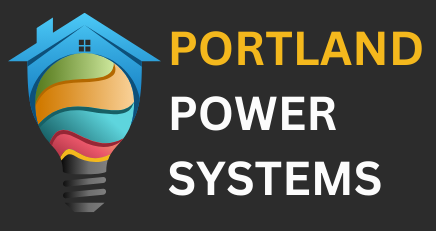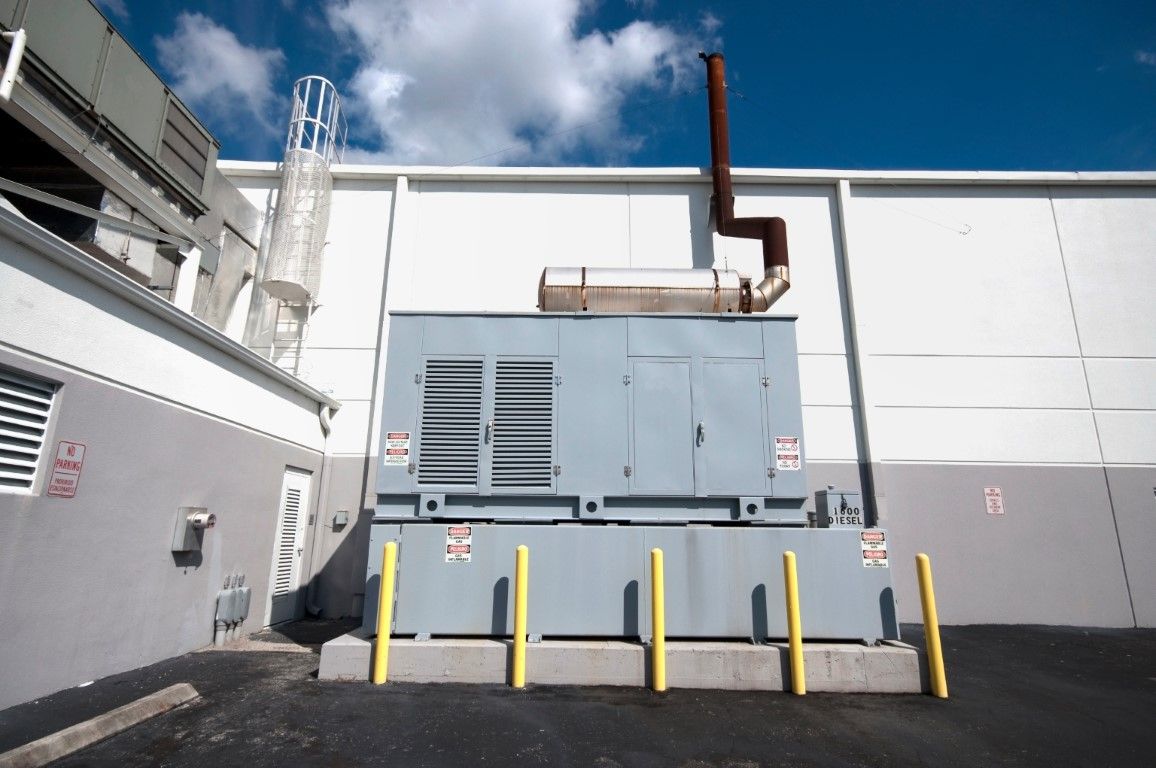
Commercial Generators in Portland OR
When it comes to ensuring reliable power for your business, a commercial generator is a crucial investment. A commercial generator is a machine designed to provide electricity when the main power source fails. Unlike residential generators, these units are built to handle the higher demands of business operations. Key features to consider include the generator’s capacity, which should match your power needs, its fuel type (diesel, natural gas, or propane), and its reliability in various weather conditions. Additionally, factors like noise level and ease of maintenance can influence the choice of a generator.
Different Types
Commercial generators come in several types, each suited for different applications. Standby generators are the most common, automatically kicking in when there’s a power outage. Portable generators, while less powerful, offer flexibility and can be used in various locations. Meanwhile, prime generators provide continuous power for operations that cannot afford interruptions, such as hospitals and data centers. Understanding these types helps in selecting the right generator for your specific needs.
Installation, Maintenance, and Operation
Proper installation is crucial for the efficient operation of a commercial generator in Portland, OR. It typically involves setting up the unit in a well-ventilated, accessible area and connecting it to your electrical system. Maintenance is equally important to ensure long-term reliability. Regular checks, such as oil changes, fuel inspections, and system diagnostics, are essential. Operation involves monitoring the generator's performance and ensuring it’s ready to take over during an outage. Ensuring these tasks are performed by professionals can prevent issues and extend the lifespan of your generator.

We will get back to you as soon as possible.
Please try again later.
Regulatory and Safety Considerations
There are strict regulations governing the use of commercial generators. These regulations often cover emissions, noise levels, and fuel storage. Compliance with these standards is not only necessary for legal operation but also crucial for environmental and community health. Safety considerations include proper installation to avoid hazards, regular maintenance to prevent malfunctions, and training for personnel on emergency procedures.
Cost and Investment
Investing in a commercial generator involves understanding both the initial cost and the long-term expenses. The price of a generator can vary widely based on its size, type, and features. In addition to the purchase cost, consider installation fees, maintenance, and operational expenses. While the initial investment might seem substantial, the cost of downtime due to power outages can far exceed the price of a reliable generator. Therefore, it’s important to view this investment as a safeguard for your business operations.
Importance of Commercial Generators in Various Industries
Commercial generators play a vital role across various industries. In healthcare, they ensure that life-saving equipment remains operational during outages. In the hospitality industry, they keep services running smoothly, from lighting to heating. Data centers rely on generators to maintain uninterrupted access to critical data. Manufacturing and retail businesses also benefit from the assurance of continued operation during power failures. Each industry has unique needs, and a reliable generator ensures that these needs are consistently met.
Choosing the Right Commercial Generator
Selecting the right commercial generator involves evaluating your specific power needs, considering the types of generators available, and understanding the operational and regulatory requirements. It’s essential to work with experts who can assess your needs, recommend the best unit, and provide support throughout the installation and maintenance process. By making an informed decision, you ensure that your business remains operational and protected against power interruptions.
For businesses in Portland, OR, navigating the world of commercial generators can seem daunting, but you don’t have to do it alone. Contact us today to discuss your power needs, explore your options, and get professional assistance in selecting and maintaining the right commercial generator for your business. Our team is here to help ensure that your operations run smoothly, no matter what.
How to Ensure Compliance with Local Regulations for Commercial Generators
Ensuring compliance with local regulations for commercial generators is crucial for any business that relies on these systems. Compliance helps avoid fines, ensures safety, and promotes efficient operation. Whether you’re setting up a new generator or maintaining an existing one, understanding and adhering to local regulations is essential. This guide will walk you through the key steps to ensure that your commercial generator meets all legal and safety requirements.

Consult with Experts
If you’re unsure about any aspect of compliance, consider consulting with experts in the field. Compliance specialists, legal advisors, or engineers with experience in commercial generators can provide valuable guidance and help you navigate complex regulations.
Ensuring compliance with local regulations for your commercial generator can be a complex process, but it is essential for the safety and efficiency of your operations. If you need assistance with understanding regulations, obtaining permits, or ensuring that your generator meets all legal requirements, we’re here to help.
Contact us today for expert advice and support tailored to your specific needs. Our team is dedicated to ensuring that your generator is compliant, safe, and efficient.
Understand Local Regulations
Begin by researching the specific regulations that apply to commercial generators in your area. Local regulations can vary widely based on your location, so it’s important to familiarize yourself with the laws and guidelines specific to your city or county. This might include environmental regulations, safety standards, and zoning laws.
Obtain Necessary Permits
Most areas require permits for installing or operating commercial generators. Ensure you apply for and receive all necessary permits before installation. This often involves submitting detailed plans and specifications for review by local authorities. Keep a record of all permits and approvals as they may be needed for inspections or future reference.
Stay Updated on Regulatory Changes
Regulations can change over time, so it’s important to stay informed about any updates or changes that might affect your generator. Subscribe to local industry newsletters, join relevant professional organizations, or consult with a compliance expert to ensure you’re aware of any new requirements.
Follow Installation Guidelines
Adhere to installation guidelines provided by both the generator manufacturer and local regulations. Proper installation is crucial for safety and compliance. This may include specific requirements for placement, ventilation, and connection to electrical systems. Make sure your installation team is familiar with these guidelines and has experience working with commercial generators.
Regular Maintenance and Inspections
Compliance doesn’t end with installation. Regular maintenance and inspections are essential to ensure ongoing compliance with local regulations. Schedule routine checks and maintenance according to the manufacturer’s recommendations and local requirements. Keep detailed records of all maintenance activities and inspections as proof of compliance.
Train Your Staff
Ensure that your staff is trained on the proper use and maintenance of the generator. They should be aware of safety procedures, emergency protocols, and compliance requirements. Proper training helps prevent accidents and ensures that everyone involved in operating or maintaining the generator understands their responsibilities.
Understanding the Power Requirements for Different Types of Commercial Generators
In the world of commercial operations, reliable power supply is critical. Whether you're running a large manufacturing plant, managing a shopping center, or overseeing a hospital, the right generator can make the difference between smooth operation and unexpected downtime. Understanding the power requirements for different types of commercial generators ensures you choose the most suitable option for your needs. Commercial generators come in various types and sizes, each designed to meet specific power demands. To make an informed choice, it's essential to grasp the power requirements and how they align with the generator's capabilities. Here’s a breakdown of the key factors to consider:
Types of Commercial Generators
Diesel Generators
Known for their robustness and reliability, diesel generators are often used in industries that require continuous power supply. They are suitable for high-demand scenarios and can handle large loads.
Natural Gas Generators
These are favored for their cleaner operation and lower fuel costs. Natural gas generators are ideal for businesses looking for a more eco-friendly option with stable fuel availability.
Propane Generators
Offering a cleaner alternative to diesel, propane generators are useful in locations where natural gas isn't available. They provide a good balance between performance and environmental considerations.
Power Output Needs
Standby Power
This is the power required to keep essential systems running during a power outage. It is typically lower than the generator’s maximum capacity, designed to handle only critical loads.
Prime Power
This is used in situations where the generator provides the main source of power. The generator must be capable of running continuously and handle varying loads throughout its operation.
Continuous Power
For operations requiring constant, uninterrupted power, the generator must be able to handle the load without frequent maintenance or downtime.
Load Analysis
Total Power Load
Calculate the total power required by adding up the wattage of all connected equipment. This includes lighting, HVAC systems, machinery, and any other essential devices.
Startup Power
Some equipment requires more power to start up than to run. Ensure the generator can handle these peak loads without strain.
Capacity and Size
Generator Capacity
Choose a generator with a capacity slightly higher than your maximum power requirements to account for future expansion and unexpected load increases.
Physical Size
Ensure the generator fits within the designated space at your facility. Consider ventilation and accessibility for maintenance.
Fuel Efficiency and Runtime
Fuel Consumption
Assess how efficiently the generator uses fuel. This can impact operational costs, especially in long-term use.
Runtime
Check the generator's runtime on a full tank of fuel. This is crucial for extended outages or continuous operation scenarios.
Maintenance and Support
Service Requirements
Regular maintenance is essential to keep the generator in optimal condition. Check the manufacturer’s recommendations for service intervals and the availability of local support.
Selecting the right commercial generator involves understanding your power needs and matching them with the appropriate generator type and capacity. If you have any questions or need assistance in choosing the best generator for your business, don’t hesitate to reach out. Our team of experts is ready to help you navigate the options and ensure you get a reliable, efficient solution tailored to your specific requirements. Contact us today to discuss your power needs and find the perfect generator for your commercial operation.
Let's Connect!
Looking for dependable power solutions? Hire us for expert assistance. Our team is dedicated to ensuring your home or business stays powered during outages, providing peace of mind and security. Trust us to handle your power needs with professionalism and expertise.